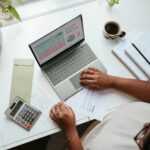Noam Chomsky, a luminary in the world of linguistics, philosophy, and cognitive science, has made significant contributions that have reshaped our understanding of language and mind. With a net worth of $500 thousand, Chomsky’s influence extends far beyond monetary value, impacting various academic fields and socio-political discourse. Born on December 7, 1928, in East Oak Lane, Philadelphia, Chomsky’s journey is a testament to intellectual rigor and passionate activism.
Early Life and Formative Influences
Avram Noam Chomsky was born to Jewish immigrants, William and Elsie Chomsky. His early education at Deweyite Oak Lane Country Day School and Central High School laid the foundation for his intellectual pursuits. The environment at home, enriched with discussions on politics and education, significantly shaped his early worldview. Chomsky’s father, a Hebrew scholar, influenced his early academic interests, while his exposure to leftist and anarchist ideas in his youth directed his political inclinations.
At just 16, Chomsky enrolled at the University of Pennsylvania, where he studied under the mentorship of Zellig Harris, a prominent linguist. Harris’s influence steered Chomsky towards theoretical linguistics, leading him to earn his BA, MA, and PhD from the University of Pennsylvania. His doctoral thesis on transformational grammar marked the beginning of his revolutionary contributions to linguistics.
Academic and Linguistic Contributions
In 1955, Chomsky began his teaching career at MIT as an assistant professor. His rise was swift, and by 1961, he was a tenured full professor. During this period, he published “Syntactic Structures,” a seminal work that introduced transformational-generative grammar. His 1959 review of B.F. Skinner’s “Verbal Behavior” further solidified his position as a leading critic of behaviorist approaches to language.
Chomsky co-founded MIT’s linguistics graduate program with Morris Halle, pioneering the study of biolinguistics and the theory of universal grammar. His works, including “Aspects of the Theory of Syntax” and “Cartesian Linguistics: A Chapter in the History of Rationalist Thought,” established foundational concepts that argued language’s innate structures within the human mind.
Political Activism and Anti-War Efforts
The 1960s saw Chomsky emerge as a vocal critic of the Vietnam War. His essay “The Responsibility of Intellectuals,” published in the New York Review of Books, brought him national attention. This essay, along with others, was later included in his 1969 book “American Power and the New Mandarins.” Chomsky’s anti-war stance was not limited to writings; he actively participated in protests and co-founded the anti-war collective RESIST.
Chomsky’s political activism extended beyond the Vietnam War. He consistently criticized U.S. foreign policy, from the Nicaraguan Contra War to the Iraq War. His books “At War with Asia,” “The Backroom Boys,” and “Counter-Revolutionary Violence: Bloodbaths in Fact & Propaganda,” co-authored with Edward S. Herman, reflect his unyielding stance against imperialism and state violence.
Advancements in Cognitive Science
Chomsky’s influence is not confined to linguistics; he is a pivotal figure in cognitive science. His rationalist perspective on the mind’s inherent structures challenged the prevailing structuralist theories of the 20th century. His work precipitated the “cognitive revolution,” emphasizing the mind’s role in understanding language and thought. Books like “Studies on Semantics in Generative Grammar” and “Reflections on Language” further expanded his theories, making significant contributions to the philosophy of mind and science.
Later Career and Personal Life
After retiring from MIT in 2002, Chomsky continued his academic journey at the University of Arizona. In 2017, he joined the university as a part-time professor, teaching courses in politics and continuing his work in linguistics. His academic endeavors earned him numerous honorary degrees from prestigious institutions worldwide, including Columbia University and the University of Cambridge.
Chomsky’s personal life was marked by a deep bond with his childhood friend Carol Doris Schatz, whom he married in 1949. The couple had three children and remained together until Carol’s passing in 2008. In 2014, Chomsky married Valeria Wasserman.
Legacy and Continuing Influence
Noam Chomsky’s legacy is multifaceted, encompassing groundbreaking work in linguistics, profound contributions to cognitive science, and unwavering political activism. His theories on transformational grammar and universal grammar have become cornerstones of modern linguistic theory. As a social critic, his writings and activism have inspired generations to question and challenge established power structures.
Chomsky’s enduring influence is evident in his continued relevance in academic and political discourse. At 95, his passion for knowledge and justice remains undiminished, making him a towering figure in contemporary thought. His life’s work exemplifies the power of intellectual pursuit combined with a steadfast commitment to social justice, ensuring his place as one of the most significant scholars of our time.










